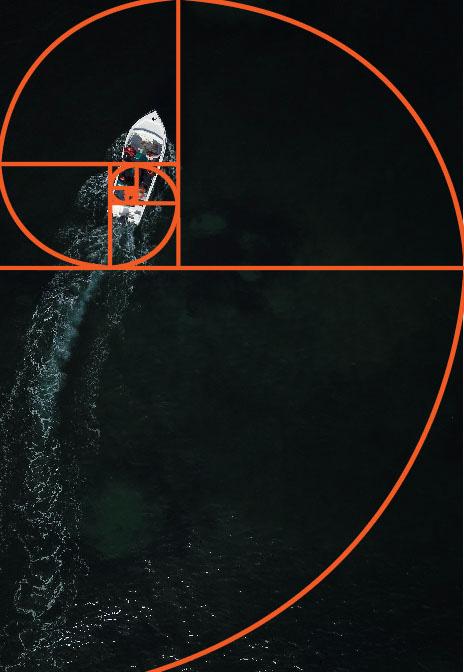When we compose a picture, is it better to use the golden ratio composition or the rule of thirds? In this article, we will go into detail about these two composition methods and tell you which one is more suitable for composition.
The Golden Ratio is a combination tool, also known as the Fibonacci spiral. is a spiral curve drawn from a Fibonacci sequence, which we express in terms of the formula: a / b = (a + b) / a = 1.61803398875. In short, it is 1:1.618.
The golden ratio is part of every natural object (plant and animal). It's a pretty magical number. For photography, the composition created by this proportion is in line with the aesthetic concept of the human subconscious.

The good thing about the Golden Ratio is that you can use it in 8 different ways. Four have a longitudinal and four have a transverse.
The rule of thirds is another compositional rule. The advantage of this composition rule is that we can easily use it on cameras and image editing software.
If you place two hypothetical horizontal lines along the scene, one at 1/3 and the second at 2/3. Then place the two lines vertically, 1/3 and 2/3 of the frame. As shown in the following figure:
There are two ways to use the rule of thirds in our photography. One is to place the subject you photograph at a point where the horizontal and vertical lines intersect (this can be upper left, upper right, lower left, or lower right). The second is to place the photographed object on this horizontal and vertical line. In this way, you will find that the picture will be more beautiful, rather than directly in the center of the picture.
When shooting landscapes, do not place the horizon in the middle of the frame, but at 1/3 and 2/3 of the frame.
For example, if we are photographing the surface of the water, it is best to place the water surface at 1/3 of the frame and the sky at 2/3 of the frame. And vice versa, because it depends on where the interest lies.
Of course, we can also use the two methods mentioned above in combination, which will be more perfect.
When it comes to the golden ratio and the rule of one-third, these compositions really depend on what you're shooting. As a general rule, the rule of thirds is best suited for the simplest scenarios. Includes a simple portrait or an image of an object. But not suitable for product photography. Here, the object is the main focus, while creativity takes a back seat.
By using the concept of the golden section, the viewer's eyes will move along this line, staying at the end of the spiral. This is best used for traveling images in a scene where there are a lot of stories happening.
They can be people, buildings, and other objects. This composition method is best used to tell the story. It's not just a focal point, there's more to it.
Deciding which composition method is better is difficult. When we enter the world of photography, we often have the rules of composition of the rule of the rule of thirds. It is by far the most talked about and most commonly used composition rule, but also the most annoying. But we can easily see the mesh of the third in the camera's viewfinder and live view, which is convenient for our shooting.
The golden ratio is more complex. No photographer would sit there, facing the camera, looking for the golden ratio. This will take too long, especially if you're shooting on the street, portraits or sports. Golden Ratio is a good tool for cropping images. It is often used on post-editing.